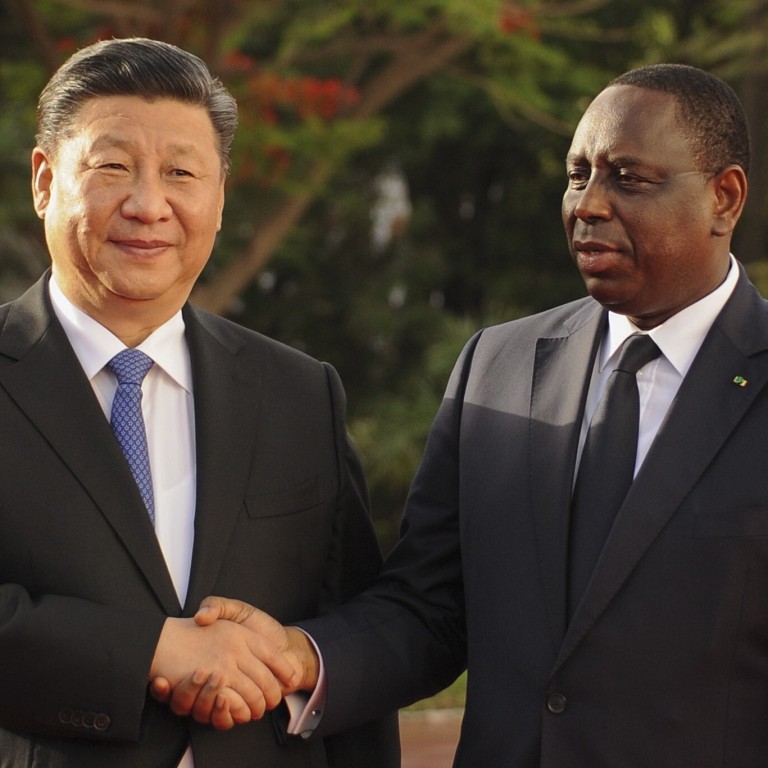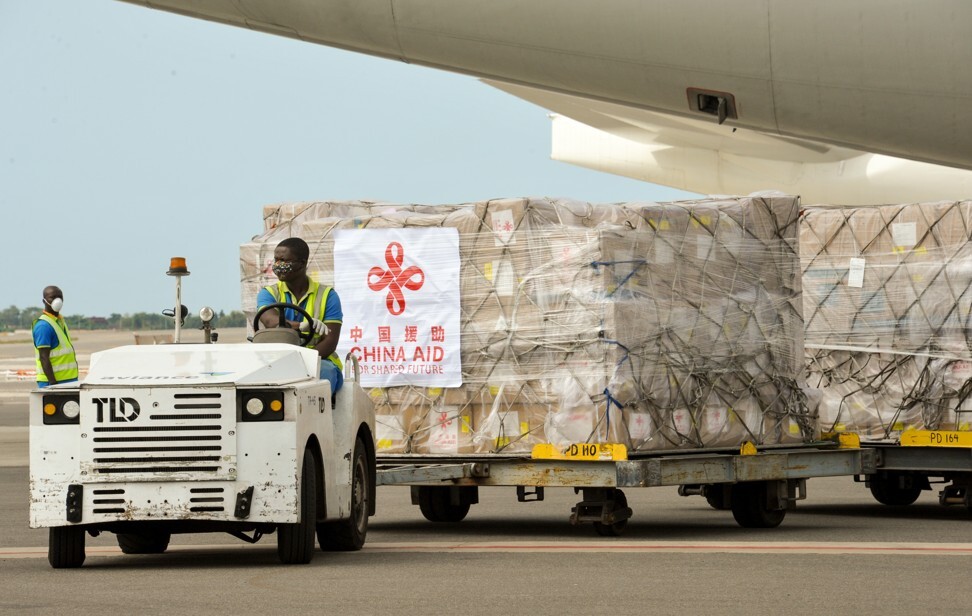
After 20 years, there’s more than mere economic exchange in China’s trade relationship with Africa
- The Forum on China-Africa Cooperation has helped projects get built in Africa and China find resources and new markets
- Observers say African partners mostly negotiated from position of weakness but the dynamic is shifting
On Monday, Chinese President Xi Jinping and his Senegalese counterpart Macky Sall, who are co-chairs of the Forum on China-Africa Cooperation (FOCAC), marked the anniversary.
China would fulfil all promises made under FOCAC since it “always delivers” and does “not make empty promises”, Foreign Minister Wang Yi said.
Wang said China-Africa cooperation had made impressive achievements, growing direct Chinese investment stock in Africa to US$49.1 billion in 2019, up nearly 100 times from 2000. He said China-Africa trade last year reached US$208.7 billion, 20 times the size it was in 2000 when the forum was formed to help grow China-Africa trade.
“China has been Africa’s largest trading partner for 11 years in a row, and has contributed more than 20 per cent to Africa’s growth for a number of years,” Wang said on Thursday.
FOCAC has helped unlock billions of dollars for Africa’s megaprojects, including power dams, ports, railways and roads. In return, Beijing has sourced raw materials for its industries and markets for its products.

Michael Chege, a Nairobi-based professor of political economy, said in the past two decades, FOCAC had changed the African development financing scene in a way nobody could have anticipated when the forum first met in Beijing in October 2000.
Most of the credit had gone into infrastructure projects that “our traditional Western donors have promised in the past, such as in the 2005 Gleneagles G8 Summit, but not honoured”, he said.
“China has been the one in the driver’s seat, and it was Africans responding to a Chinese initiative and always negotiating from a position of weakness,” said Gyude Moore, Liberia’s former public works minister and a senior policy fellow at the Centre for Global Development in Washington.
China is behind billion dollar debt restructure for Angola, analysts say
Those sentiments were echoed by David Shinn, a professor at George Washington University’s Elliott School of International Affairs, who said one of the biggest challenges was that “China continues to take most of the initiative in FOCAC and African countries have found it difficult to break with their emphasis on the bilateral relationship with China”.
Moore said the forum had also come under scrutiny and its main challenges remained unresolved, such as “opaque terms of the agreements and lending that did not take debt sustainability into account”.
The quality of the lending had shifted with Xi announcing in 2018 that there would be no “vanity projects”, he said.
“These problems must be addressed,” he said. “China is not providing a clear way forward. Africa must now take the initiative in its own best interests.”
But Stephen Chan, a professor of politics and international relations at the London School of Oriental and African Studies, said an inevitable but largely unforeseen development was the slow but sure accretion of negotiating expertise for some African states.
“Countries like Ethiopia are emerging as paragons and exemplars on how to deal with the Chinese on the basis of greater equality, in terms of negotiating strategy and push-back tactics,” he said.
“This is, as yet, an uneven development, with far too many governments still looking to the Chinese for quick-fix liquidity, even if that means long-term debt. In those terms, FOCAC still works as a device for the Chinese, in which it can appear generous.”
China’s inroads into Africa have also rattled its rivals, including the United States, Japan and France, forcing “Africa’s traditional partners to reassess their engagement with the continent and look beyond their usual humanitarian lenses”, Moore said.
For instance French President Emmanuel Macron, in his meeting with Kenyan President Uhuru Kenyatta earlier this month, admitted as much when he said countries like Kenya turned to China because it “provided funding and turnkey solutions along with ultra-competitive investments”.
“If Covid-19 remains a serious issue in 2021, it will be difficult to go forward with the scheduled summit,” Shinn said.
“Otherwise, it may not have much impact on China-Africa relations beyond the negative role it plays in exacerbating African debt and complicating loan repayments to China.”

